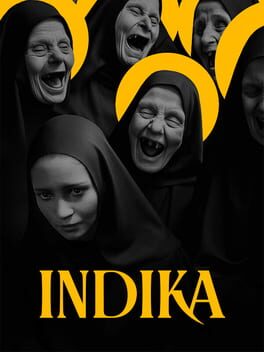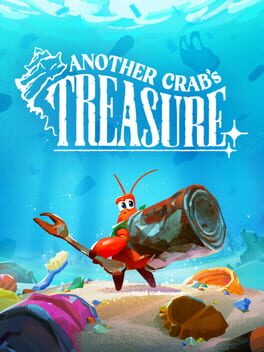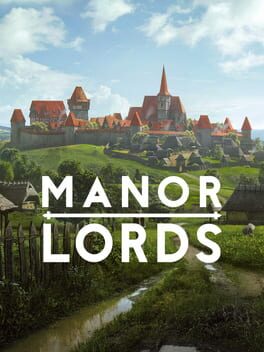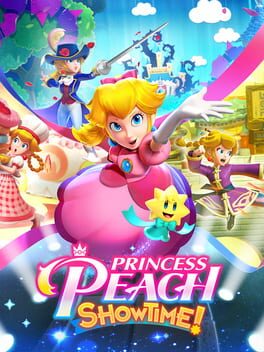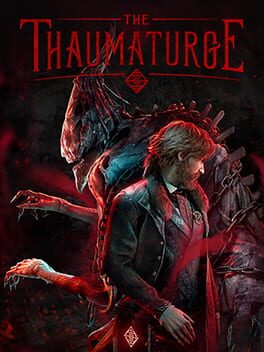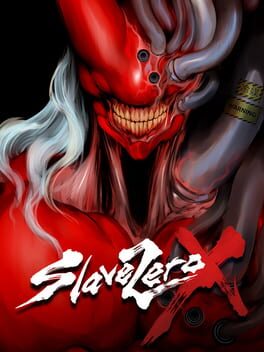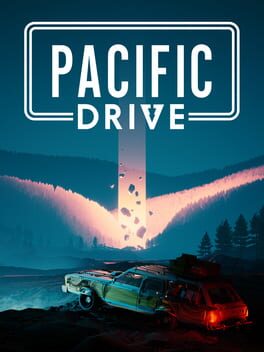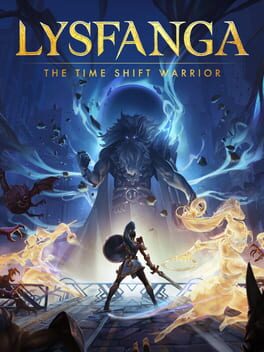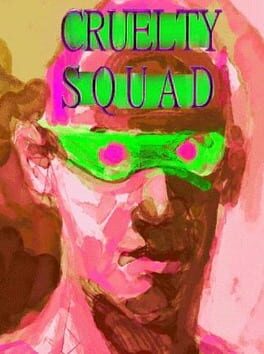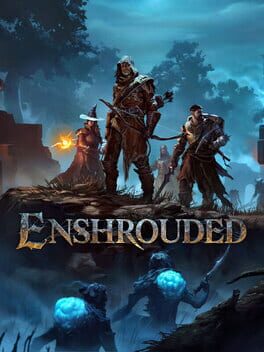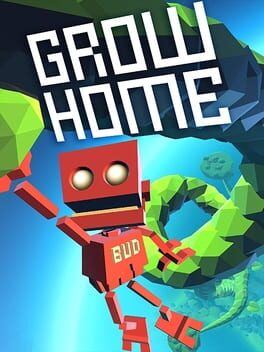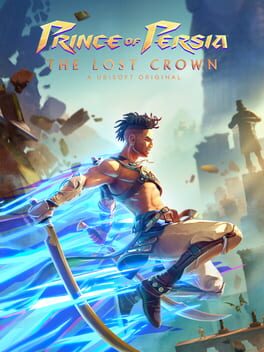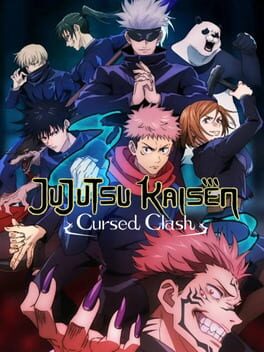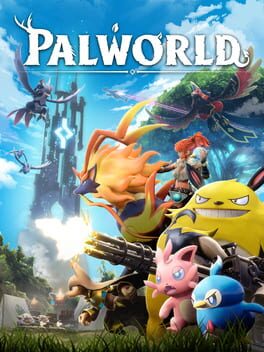2024
2023
This review contains spoilers
All that there was to say about Lies of P has been said already, and I concur with all you praisers - this is one of the best soulslikes to date, up there with the best of FromSoft's.
It’s ironic how my opinion on LiP is almost inverted from Dark Souls. The first DS is, honestly, not that good of a game; the pacing is whack, enemy movesets straddle the line between boring and annoying, level design is often tedious, and bosses are the definition of "hit-or-miss". At the same time, Dark Souls was a groundbreaking game with a world and ambiance so captivating that it's safe to call it one of, if not the most important and beloved games of the 2010s. These elements would only get refined and expanded upon in future Souls games, to the point where Dark Souls III is kinda one of my favourite games based on writing and atmosphere alone (in addition to being a fun game anyway). All of the Dark Souls games are good as games, but, in spite of their reputation, I believe their success lies more in the exploratory, audio-visual and narrative aspects, not really mechanics or buildcrafting options.
Lies of P is almost the opposite for me. Gameplay here is fantastic, taking all the most enjoyable and dynamic parts of combat and enemy design from the soulsborne "series", mixing them together and creating something that feels similar, yet exhilaratingly unique. I particularly liked how accessible and open Lies of P can be: sure, you don't have the ranged options you had with FromSoft, but every avenue for melee combat is equally viable and fun, in addition to (mostly) great balancing on items and summons. To this day I regret summoning for my first Ornstein and Smough fight, but I never once felt like I was cheating here if I just chose to summon a spectre and pellet the boss with grenades until the spectre dies. Unless you're a die-hard strength-buildoid, you're gonna have the time of your life playing Lies of P if you at all enjoyed Dark Souls or Bloodborne.
But what differentiates great games from good ones, in my opinion, is that great games achieve balance between all their aspects. Combat, narrative, visuals, audio, level design, boss design, balancing, pacing, even UI have to all work in service of each other to make a truly outstanding action-game. And while Lies of P does exceedingly well in the technical and gameplay departments, it doesn't really have…the sauce. You know?
Those "woah" moments, like finding your way back to Firelink Shrine, or first arriving in Anor Londo, or touching the egg, or first laying eyes on the horizon in Majula, or fighting Sister Friede, or making your way down to Ash Lake - there isn't really an equivalent in this game. The realms in which Lies of P struggles the most is definitely the story and themes.
There are certainly a lot of attempts to establish themes, but most fall flat in the fleshing out stage. The game asks “What makes a human?” or “What is freedom?”, but doesn’t provide many interesting takes, or even asks the questions in any sort of intriguing way. I suppose it’s quite lovely to imply that what makes one truly human, is genuine expression of your true feelings and a willingness to make your own choices, but characters rarely go beyond “I’m a puppet and can feel love”, or “I’m a human who’s kind of anti-social”. Like a lot of videogames, Lies of P is more interested in plot rather than story, with plenty going on (and at a great pace, too!), but not too much happening to key players or even episodic characters.
And it’s not like From Software games are big on character arcs either, but, simply put, Solaire alone is more interesting and note-worthy than almost every guy, gal and robot pal in Lies of P, because his conflict is a lot more emotional, and his writing is a lot more memorable. Implied depth of some characters is hidden in item descriptions, and you sometimes get really well defined cast members, especially if they’re a vendor in the Hotel, but aside from Polendina and the weird shit that happens to Sophia, there isn’t much to hold on to. Antonia is one-note, as is Eugenie, Veghini shows little outside of his “I’m a genius wealthy socialite but publicly-minded and a bit cowardly too” routine, and Gepetto is SUPER boring. I wouldn’t say that Lies of P’s narrative quality is poor because it’s not as good as Dark Souls, but it is, purely in isolation, just not too exciting or stimulating.
The vibes are off the chart here, though, and the first time you get to a new location always feels pretty magical and engrossing, in large part because of just how excellent Lies of P is in its general construction. This game never felt too hard, too dark, too reliant on one motif or level gimmick; like an automaton, it moves tirelessly forward. New weapons, new enemy types, new locations, new cool shit is waiting around every new corner. Nothing really overstays its welcome, and every experience is a fleeting moment you want to have once more. If nothing else, where Lies of P doesn’t fully deliver, it still leaves you hungry for more. Which kinda reminds me of RE4?
Speaking of which, let’s talk about ripoffs. Much digital ink has been spilled on the subject of “ripoffs”, a lot of deliberation on what is or is not a “good ripoff”, and endless discussions about where does a line between a ripoff and an homage lie. In the last 10-ish years, the most interesting subject of this particular discourse has definitely been the Star Wars sequel trilogy, with The Force Awakens being an especially interesting case-study. It takes a lot of clear inspiration from A New Hope, with major plot points, on paper, being almost identical to the original film. Any sequel trilogy defender will tell you that, yes, a lot of general story beats and character archetypes are similar, but the new characters, distinct from the old, specifically Finn and Kylo Ren, provide a new emotional context to the proceedings, elevating The Force Awakens from a simple ripoff to something new, while still being familiar.
And I tend to agree with this. I’ve always thought it disingenuous to lay out two very different pieces of art on a table, dissect them with utmost technical certainty, and claim that because “A mentor dies in both” or “Both have a second act oopsy-fucksy that sets our heroes back before they prevail in the finale”, that these two things are fundamentally the same. It’s fine to feel like a similar structure reminds you too much of a thing you’ve already experienced, but so often those kinds of comparisons are made to shove a thing into a plastic tube, where you can freely point out all the flaws and supposed lack of originality, disregarding context and all the little and small stuffs that make this thing unique.
Lies of P, even more so than The Force Awakens, handles its myriad inspirations in a very sophisticated way. Obviously, a huge point of comparison here is Bloodborne, but even calling Lies of P a “Bloodborne-inspired game” feels wrong to me. Truly, what is Bloodborne here? A 19th century European urban setting? A nimble character? The rally system? Like, two weapons? Sure, but if you play each game, those things are handled differently, feel different, look very different, exist in a completely different context, and, as a result, the games don’t resemble each other at all.
Is there some Sekiro here? Sure; you have different prosthetics, one of which is basically a grappling hook, you have a focus on staggering your opponent by blocking their attacks with precise timing, but those things, again, are very differently done. The Legion Arms that P is rocking aren’t prosthetics, but feel like an integral part of your character, thanks in large part to how effectively the whole “playing an automaton” gimmick has been executed. There’re also incentives to switch your Legions every other location and boss, because each one is more effective against certain enemies, in certain levels, or against a certain boss. Depending on your strategy and how much of your Elden Ring playthrough is dominated by the Greatsword, you may roll through the entire game with just the String, or the Shield, or even the starter arm, since it takes up the least weight and is very straightforward, but a lot of players will keep on switching and finding new approaches with each Arm. The Perfect Guard mechanic doesn’t resemble the Sekiro parries, or, for that matter, the normal block of any of the Souls games: you are encouraged to study enemy and boss movesets, but there isn’t one most optimal strategy for avoiding damage. Depending on your skill, playstyle or how fucked up the boss is, you can dodge, block + rally, perfect guard, or parry an attack at your leisure. There’s a lot more space to run around, stay perfectly still, use items, summons, unique weapon skills, etc. than in most other soulslikes.
Of course, like with any soulslike, there are balancing issues here. The perfect guard system especially is a bit at odds with enemy design: most enemies you encounter, especially in the first several levels, are really squishy, and your best bet to deal with them is stunlocking them with a flurry of light attacks. That doesn’t leave much room to get acquainted with how perfect guards work, and when bosses start ramping up, you might find yourself experiencing a bit of a difficulty spike; you didn’t need to know how to parry, and now you do. This is why the Scrapped Watchman was the second-hardest boss in the game for me, even though it’s the second one you meet. Until I met him, I basically tried playing Lies of P like a traditional soulslike, with the pattern of “dodge, two-three hits to punish, rinse and repeat until the bitch is dead”. But after I figured out how to effectively use all the tools P has at his disposal, this game really transformed into something entirely new from what I’ve seen before.
Of course, towards the last quarter of the game, Lies of P starts giving you all kinds of ridiculously strong trinkets to mess around with, which can significantly mess with the challenge. Your mileage may vary, but a fully upgraded Aegis, the Perfection Grindstone and a spectre buffed with a Flame Wishstone is all you need to bully all but a couple of the end-game bosses without many issues. I generally felt that items and summons didn’t hamper the challenge and fun of the game for most of it, but some of those items, combined with some others, can be a real overkill. The Two Dragon Sword especially can be a complete menace.
Despite the big and the small issues I had with this game, it’s undeniably an impressive achievement. Judging from the absolutely wild post-credits scene, I wouldn’t be expecting a watershed soulslike moment from Round 8 anytime soon, but with Lies of P I am now confident that we’re nearing a dawn of a new era of soulslikes. With From Software seemingly moving away from the genre, and how Lies of P is (probably?) the most critically and commercially successful soulslike since Miyazaki started stirring shit up, after Shadow of the Erdtree drops, Round 8 might just be the stewards of this new age. Cheers to it being a good one, may Dorothy do Yoda flips on fools in her game, may Pinocchio’s nose staff pierce the heavens in the DLC.
P.S.
Actually a lot of this reminded me of Resident Evil 4, the whole village section coupled with a cable car ride was very RE4. And then the dogs did the thing from the first game? But then the big petrification bosses were very Bloodborne, so I dunno. Great homages all around honestly
It’s ironic how my opinion on LiP is almost inverted from Dark Souls. The first DS is, honestly, not that good of a game; the pacing is whack, enemy movesets straddle the line between boring and annoying, level design is often tedious, and bosses are the definition of "hit-or-miss". At the same time, Dark Souls was a groundbreaking game with a world and ambiance so captivating that it's safe to call it one of, if not the most important and beloved games of the 2010s. These elements would only get refined and expanded upon in future Souls games, to the point where Dark Souls III is kinda one of my favourite games based on writing and atmosphere alone (in addition to being a fun game anyway). All of the Dark Souls games are good as games, but, in spite of their reputation, I believe their success lies more in the exploratory, audio-visual and narrative aspects, not really mechanics or buildcrafting options.
Lies of P is almost the opposite for me. Gameplay here is fantastic, taking all the most enjoyable and dynamic parts of combat and enemy design from the soulsborne "series", mixing them together and creating something that feels similar, yet exhilaratingly unique. I particularly liked how accessible and open Lies of P can be: sure, you don't have the ranged options you had with FromSoft, but every avenue for melee combat is equally viable and fun, in addition to (mostly) great balancing on items and summons. To this day I regret summoning for my first Ornstein and Smough fight, but I never once felt like I was cheating here if I just chose to summon a spectre and pellet the boss with grenades until the spectre dies. Unless you're a die-hard strength-buildoid, you're gonna have the time of your life playing Lies of P if you at all enjoyed Dark Souls or Bloodborne.
But what differentiates great games from good ones, in my opinion, is that great games achieve balance between all their aspects. Combat, narrative, visuals, audio, level design, boss design, balancing, pacing, even UI have to all work in service of each other to make a truly outstanding action-game. And while Lies of P does exceedingly well in the technical and gameplay departments, it doesn't really have…the sauce. You know?
Those "woah" moments, like finding your way back to Firelink Shrine, or first arriving in Anor Londo, or touching the egg, or first laying eyes on the horizon in Majula, or fighting Sister Friede, or making your way down to Ash Lake - there isn't really an equivalent in this game. The realms in which Lies of P struggles the most is definitely the story and themes.
There are certainly a lot of attempts to establish themes, but most fall flat in the fleshing out stage. The game asks “What makes a human?” or “What is freedom?”, but doesn’t provide many interesting takes, or even asks the questions in any sort of intriguing way. I suppose it’s quite lovely to imply that what makes one truly human, is genuine expression of your true feelings and a willingness to make your own choices, but characters rarely go beyond “I’m a puppet and can feel love”, or “I’m a human who’s kind of anti-social”. Like a lot of videogames, Lies of P is more interested in plot rather than story, with plenty going on (and at a great pace, too!), but not too much happening to key players or even episodic characters.
And it’s not like From Software games are big on character arcs either, but, simply put, Solaire alone is more interesting and note-worthy than almost every guy, gal and robot pal in Lies of P, because his conflict is a lot more emotional, and his writing is a lot more memorable. Implied depth of some characters is hidden in item descriptions, and you sometimes get really well defined cast members, especially if they’re a vendor in the Hotel, but aside from Polendina and the weird shit that happens to Sophia, there isn’t much to hold on to. Antonia is one-note, as is Eugenie, Veghini shows little outside of his “I’m a genius wealthy socialite but publicly-minded and a bit cowardly too” routine, and Gepetto is SUPER boring. I wouldn’t say that Lies of P’s narrative quality is poor because it’s not as good as Dark Souls, but it is, purely in isolation, just not too exciting or stimulating.
The vibes are off the chart here, though, and the first time you get to a new location always feels pretty magical and engrossing, in large part because of just how excellent Lies of P is in its general construction. This game never felt too hard, too dark, too reliant on one motif or level gimmick; like an automaton, it moves tirelessly forward. New weapons, new enemy types, new locations, new cool shit is waiting around every new corner. Nothing really overstays its welcome, and every experience is a fleeting moment you want to have once more. If nothing else, where Lies of P doesn’t fully deliver, it still leaves you hungry for more. Which kinda reminds me of RE4?
Speaking of which, let’s talk about ripoffs. Much digital ink has been spilled on the subject of “ripoffs”, a lot of deliberation on what is or is not a “good ripoff”, and endless discussions about where does a line between a ripoff and an homage lie. In the last 10-ish years, the most interesting subject of this particular discourse has definitely been the Star Wars sequel trilogy, with The Force Awakens being an especially interesting case-study. It takes a lot of clear inspiration from A New Hope, with major plot points, on paper, being almost identical to the original film. Any sequel trilogy defender will tell you that, yes, a lot of general story beats and character archetypes are similar, but the new characters, distinct from the old, specifically Finn and Kylo Ren, provide a new emotional context to the proceedings, elevating The Force Awakens from a simple ripoff to something new, while still being familiar.
And I tend to agree with this. I’ve always thought it disingenuous to lay out two very different pieces of art on a table, dissect them with utmost technical certainty, and claim that because “A mentor dies in both” or “Both have a second act oopsy-fucksy that sets our heroes back before they prevail in the finale”, that these two things are fundamentally the same. It’s fine to feel like a similar structure reminds you too much of a thing you’ve already experienced, but so often those kinds of comparisons are made to shove a thing into a plastic tube, where you can freely point out all the flaws and supposed lack of originality, disregarding context and all the little and small stuffs that make this thing unique.
Lies of P, even more so than The Force Awakens, handles its myriad inspirations in a very sophisticated way. Obviously, a huge point of comparison here is Bloodborne, but even calling Lies of P a “Bloodborne-inspired game” feels wrong to me. Truly, what is Bloodborne here? A 19th century European urban setting? A nimble character? The rally system? Like, two weapons? Sure, but if you play each game, those things are handled differently, feel different, look very different, exist in a completely different context, and, as a result, the games don’t resemble each other at all.
Is there some Sekiro here? Sure; you have different prosthetics, one of which is basically a grappling hook, you have a focus on staggering your opponent by blocking their attacks with precise timing, but those things, again, are very differently done. The Legion Arms that P is rocking aren’t prosthetics, but feel like an integral part of your character, thanks in large part to how effectively the whole “playing an automaton” gimmick has been executed. There’re also incentives to switch your Legions every other location and boss, because each one is more effective against certain enemies, in certain levels, or against a certain boss. Depending on your strategy and how much of your Elden Ring playthrough is dominated by the Greatsword, you may roll through the entire game with just the String, or the Shield, or even the starter arm, since it takes up the least weight and is very straightforward, but a lot of players will keep on switching and finding new approaches with each Arm. The Perfect Guard mechanic doesn’t resemble the Sekiro parries, or, for that matter, the normal block of any of the Souls games: you are encouraged to study enemy and boss movesets, but there isn’t one most optimal strategy for avoiding damage. Depending on your skill, playstyle or how fucked up the boss is, you can dodge, block + rally, perfect guard, or parry an attack at your leisure. There’s a lot more space to run around, stay perfectly still, use items, summons, unique weapon skills, etc. than in most other soulslikes.
Of course, like with any soulslike, there are balancing issues here. The perfect guard system especially is a bit at odds with enemy design: most enemies you encounter, especially in the first several levels, are really squishy, and your best bet to deal with them is stunlocking them with a flurry of light attacks. That doesn’t leave much room to get acquainted with how perfect guards work, and when bosses start ramping up, you might find yourself experiencing a bit of a difficulty spike; you didn’t need to know how to parry, and now you do. This is why the Scrapped Watchman was the second-hardest boss in the game for me, even though it’s the second one you meet. Until I met him, I basically tried playing Lies of P like a traditional soulslike, with the pattern of “dodge, two-three hits to punish, rinse and repeat until the bitch is dead”. But after I figured out how to effectively use all the tools P has at his disposal, this game really transformed into something entirely new from what I’ve seen before.
Of course, towards the last quarter of the game, Lies of P starts giving you all kinds of ridiculously strong trinkets to mess around with, which can significantly mess with the challenge. Your mileage may vary, but a fully upgraded Aegis, the Perfection Grindstone and a spectre buffed with a Flame Wishstone is all you need to bully all but a couple of the end-game bosses without many issues. I generally felt that items and summons didn’t hamper the challenge and fun of the game for most of it, but some of those items, combined with some others, can be a real overkill. The Two Dragon Sword especially can be a complete menace.
Despite the big and the small issues I had with this game, it’s undeniably an impressive achievement. Judging from the absolutely wild post-credits scene, I wouldn’t be expecting a watershed soulslike moment from Round 8 anytime soon, but with Lies of P I am now confident that we’re nearing a dawn of a new era of soulslikes. With From Software seemingly moving away from the genre, and how Lies of P is (probably?) the most critically and commercially successful soulslike since Miyazaki started stirring shit up, after Shadow of the Erdtree drops, Round 8 might just be the stewards of this new age. Cheers to it being a good one, may Dorothy do Yoda flips on fools in her game, may Pinocchio’s nose staff pierce the heavens in the DLC.
P.S.
Actually a lot of this reminded me of Resident Evil 4, the whole village section coupled with a cable car ride was very RE4. And then the dogs did the thing from the first game? But then the big petrification bosses were very Bloodborne, so I dunno. Great homages all around honestly
2024
I might be a dumb-dumb city-builder casual, but Manor Lords seems more sizzle than steak at the moment. It's genuinely impressive that this is a solo-developed game, but it also very much shows: the realistic style does nothing but hamper performance, there are a billion cool sounding features that were just not ready for release (specifically all the customization stuff), and the balancing is kinda whack. I appreciate the ambition, but pan Greg definitely needs to hire some talent to eventually make this worth the price of admition, because, after the novelty of the experience wears off, it becomes clear just how little there is to do in Manor Lords. Will definitely be rooting for this one, but it's currently just not very interesting.
In the meantime, go buy Farthest Frontier (my beloved)
In the meantime, go buy Farthest Frontier (my beloved)
This is so transparently a "we don't want to release anything big before our next console so let's make something cheap but kinda pretty in a year" game that I'm surprised there's anyone defending or genuinely enjoying it.
An immediate instinct might be to compare it to the latest Yoshi games, and I mean, yeah - both Showtime(!) and Woolie/Crafted World are ostensibly kids' games and are even made by the same developer. Both are kinda small, easy, chill experiences for da babies.
But the obvious difference is that the Yoshi games had...things? Impessive and creative visuals, solid gameplay, memorable music and/or set-pieces? Something? While Showtime(!) has, what, cool costumes for Peach to wear?
This is not a bad idea for a game, or even a Peach game, it's just that for the level of variety this one tries for, you need the various themes and levels to be distinct. Instead, half play the exact same with minor aesthetic differences that don't do enough to make you feel like you're even playing functionally different levels, let alone doing different "plays". Every theme is surface level and boring, to the point that I struggle to imagine myself be engaged by this even if I was 4 years old again.
The play performances thing was also super underdeveloped, with unclear rules or motivations for...anyone, really. I guess Peach is doing magical stage plays in a magical theatre where you need to follow the story to make things progress, but then what is that villian? Who are the henchmen? The bosses?
I'm not asking for the antagonist to have a deep backstory and complex motives for fucking things up, I'm asking for anything to engage with. And since all the narrative or audio-visual stuff is just plain dull, the gameplay is left to fend for itself. And it ain't doing good. That's cause, like I said, most levels basically play the same: you have a few minutes of dull-looking beat-em-up gameplay, then either the beat-em-up'ing continues and culminates with a "chase" scene, or you do some level-specific minigame that's impossible to lose. The only deviation from this, really, is the Boss levels, which are mostly pretty boring too. Just the standard "do a thing three times, but it's a bit harder each time", only I don't know who would struggle with this stuff besides literal 2 year-olds.
There are some other annoyances and gripes I have with Showtime (!), like how almost all of the few different transformations get repeated at least once, and never with any meaningfull new mechanics or twists, how Nintendo literally didn't tell us who was making this until it got leaked with the demo (maybe so we don't discover it's the Kirby's Epic Yarn guys and that this is a toddler game), or how this is clearly a cash-grab made in a year instead of a genuine attempt to make a good spin-off. But most of all, it just sucks that Nintendo keeps insisting on throwing together shitty barebones spinoffs into empty release windows instead of just making cool games that aren't their flagships.
Good thing I didn't buy it!
An immediate instinct might be to compare it to the latest Yoshi games, and I mean, yeah - both Showtime(!) and Woolie/Crafted World are ostensibly kids' games and are even made by the same developer. Both are kinda small, easy, chill experiences for da babies.
But the obvious difference is that the Yoshi games had...things? Impessive and creative visuals, solid gameplay, memorable music and/or set-pieces? Something? While Showtime(!) has, what, cool costumes for Peach to wear?
This is not a bad idea for a game, or even a Peach game, it's just that for the level of variety this one tries for, you need the various themes and levels to be distinct. Instead, half play the exact same with minor aesthetic differences that don't do enough to make you feel like you're even playing functionally different levels, let alone doing different "plays". Every theme is surface level and boring, to the point that I struggle to imagine myself be engaged by this even if I was 4 years old again.
The play performances thing was also super underdeveloped, with unclear rules or motivations for...anyone, really. I guess Peach is doing magical stage plays in a magical theatre where you need to follow the story to make things progress, but then what is that villian? Who are the henchmen? The bosses?
I'm not asking for the antagonist to have a deep backstory and complex motives for fucking things up, I'm asking for anything to engage with. And since all the narrative or audio-visual stuff is just plain dull, the gameplay is left to fend for itself. And it ain't doing good. That's cause, like I said, most levels basically play the same: you have a few minutes of dull-looking beat-em-up gameplay, then either the beat-em-up'ing continues and culminates with a "chase" scene, or you do some level-specific minigame that's impossible to lose. The only deviation from this, really, is the Boss levels, which are mostly pretty boring too. Just the standard "do a thing three times, but it's a bit harder each time", only I don't know who would struggle with this stuff besides literal 2 year-olds.
There are some other annoyances and gripes I have with Showtime (!), like how almost all of the few different transformations get repeated at least once, and never with any meaningfull new mechanics or twists, how Nintendo literally didn't tell us who was making this until it got leaked with the demo (maybe so we don't discover it's the Kirby's Epic Yarn guys and that this is a toddler game), or how this is clearly a cash-grab made in a year instead of a genuine attempt to make a good spin-off. But most of all, it just sucks that Nintendo keeps insisting on throwing together shitty barebones spinoffs into empty release windows instead of just making cool games that aren't their flagships.
Good thing I didn't buy it!
2024
Has some cool ideas, but is so cheap it hurts. It especially becomes apparent with the dub and the different localization options, where the dub is inconsistent and feels like it was done remotely and with little direction, and the localizations lack quality assurance. There are some confusing things that have to do with how quests work, and fights feel like a cakewalk or an impossibility sometimes, but the cheapness really is the biggest issue. This team might've bit off more than they could chew. Or I'm just stupid and impatient idunno
2024
A few missions in, this feels...wrong. On a few levels.
Mainly, the fighting mechanics feel unfinished: I've yet to encounter a single enemy type that would give me any grief if I just continue wailing on them, and dodging or parrying is strictly useless. There are a few combos you can input, but their effect feels homogenous, and doing them seems pointless, in part because the style system doesn't seem to understand what made Devil May Cry special. There it feels 1-1 with your actions: many cool and varied moves = good, a few repetitive moves = bad. Your rank changes every other second in direct response to your gameplay, and, especially in DMC 5, it feels good to maintain a high rank. In Slave Zero X, I can't figure out what even effects rating, because the only thing that I can always reference is the combo counter, which depletes WAY too quickly. Other than that, I'm not sure what's so different between my E-rated battles and my S-rated ones (the only two ratings I managed to get).
The second big "wtf" thing is the story. I don't know if I'm dumb, or shoud've beaten the game, or listened more closely to radio chatter, but I'm not sure this narrative makes sense. After a scene where two Guys talk about Things You Don't Know About and then Do Things You Don't Understand, you just take control of this guy with his sentient exo-sceleton acting as comic relief. The game doesn't try to establish...anything, really? All dialogue feels like exposition, and yet nothing is stated concretely. I almost felt like my (admitedly pirated) version was fucked up, until I looked up some playthroughs and no. It's just incomprehensible.
Looks good, doesn't work.
Mainly, the fighting mechanics feel unfinished: I've yet to encounter a single enemy type that would give me any grief if I just continue wailing on them, and dodging or parrying is strictly useless. There are a few combos you can input, but their effect feels homogenous, and doing them seems pointless, in part because the style system doesn't seem to understand what made Devil May Cry special. There it feels 1-1 with your actions: many cool and varied moves = good, a few repetitive moves = bad. Your rank changes every other second in direct response to your gameplay, and, especially in DMC 5, it feels good to maintain a high rank. In Slave Zero X, I can't figure out what even effects rating, because the only thing that I can always reference is the combo counter, which depletes WAY too quickly. Other than that, I'm not sure what's so different between my E-rated battles and my S-rated ones (the only two ratings I managed to get).
The second big "wtf" thing is the story. I don't know if I'm dumb, or shoud've beaten the game, or listened more closely to radio chatter, but I'm not sure this narrative makes sense. After a scene where two Guys talk about Things You Don't Know About and then Do Things You Don't Understand, you just take control of this guy with his sentient exo-sceleton acting as comic relief. The game doesn't try to establish...anything, really? All dialogue feels like exposition, and yet nothing is stated concretely. I almost felt like my (admitedly pirated) version was fucked up, until I looked up some playthroughs and no. It's just incomprehensible.
Looks good, doesn't work.
2024
I hate to shelve yet another game this year, but Pacific Drive’s somber tone, air of mystery and gameplay loop were fun at first, and quickly lost their charm and became tedious.
As far as gameplay goes, the real standout thing here is the tactility. Manual control is everything in Pacific Drive: you have to manually toggle the wipers, transmission, and the headlights, regularly refuel your car, recharge its battery and repair/replace every part of your station wagon’s outer shell. The replacements do have a tangible effect on gameplay, as well. A new set of wheels, or even just one of your old wheels getting loose or punctured have an effect on your car’s handling that is very much felt. The same tactility applies to out-of-the-car gameplay, too, though to a much lesser degree. You’re taught to disassemble everything and anything you come across in the Zone, but not every thing is interactable - far from it. Most doors are permanently locked, most anomalies are basically untouchable, and most of the tech in the zone is affixed to the floor.
The issue of limited freedom in general is the one you notice pretty much right away. The first minutes of Pacific Drive see you drive a car you can’t exit or modify, then you’re led through a string of highly directed tutorials where simple actions get introduced one at a time in a very limited environment. You literally are not able to do stuff like siphon fuel from a roadside wrecked car until you’re specifically told to by Oppy, at which point you’re finally allowed to do this very simple thing. This feeling of “there’s nothing to do until the game decides it’s time” persists well into the middle portion of your playthrough, at which point all illusions thoroughly break down and the game becomes predictable and simply boring. You settle into a routine: unlock some new recipes, repair/replace parts of the car, get on the road, go to a place, gather three thingamajigs to start a visually impressive but transparently non-threatening and directed sequence of doing a warthog escape through a portal, OR go through a gate on the other side of the area to do the previous routine in another place. Gathering supplies, avoiding anomalies and maintaining your car doesn’t change quickly enough: by the time I got to Mid-Zone I’ve already taken like 6 identical drives through the Outer layer, so it’s hard to be impressed by or interested in anything anymore. You know?
It’s a shame because I genuinely was starting to become invested in these kooky scientists’ past and present struggles, and if anything, the narrative and character work in this game are surprisingly decent. Too bad all you do is drive to a place and grind for new car parts!
Tentative 6/10, might change in the future
As far as gameplay goes, the real standout thing here is the tactility. Manual control is everything in Pacific Drive: you have to manually toggle the wipers, transmission, and the headlights, regularly refuel your car, recharge its battery and repair/replace every part of your station wagon’s outer shell. The replacements do have a tangible effect on gameplay, as well. A new set of wheels, or even just one of your old wheels getting loose or punctured have an effect on your car’s handling that is very much felt. The same tactility applies to out-of-the-car gameplay, too, though to a much lesser degree. You’re taught to disassemble everything and anything you come across in the Zone, but not every thing is interactable - far from it. Most doors are permanently locked, most anomalies are basically untouchable, and most of the tech in the zone is affixed to the floor.
The issue of limited freedom in general is the one you notice pretty much right away. The first minutes of Pacific Drive see you drive a car you can’t exit or modify, then you’re led through a string of highly directed tutorials where simple actions get introduced one at a time in a very limited environment. You literally are not able to do stuff like siphon fuel from a roadside wrecked car until you’re specifically told to by Oppy, at which point you’re finally allowed to do this very simple thing. This feeling of “there’s nothing to do until the game decides it’s time” persists well into the middle portion of your playthrough, at which point all illusions thoroughly break down and the game becomes predictable and simply boring. You settle into a routine: unlock some new recipes, repair/replace parts of the car, get on the road, go to a place, gather three thingamajigs to start a visually impressive but transparently non-threatening and directed sequence of doing a warthog escape through a portal, OR go through a gate on the other side of the area to do the previous routine in another place. Gathering supplies, avoiding anomalies and maintaining your car doesn’t change quickly enough: by the time I got to Mid-Zone I’ve already taken like 6 identical drives through the Outer layer, so it’s hard to be impressed by or interested in anything anymore. You know?
It’s a shame because I genuinely was starting to become invested in these kooky scientists’ past and present struggles, and if anything, the narrative and character work in this game are surprisingly decent. Too bad all you do is drive to a place and grind for new car parts!
Tentative 6/10, might change in the future
This game is the kind that breaks your brain in the most awesome way, with its time-shifting mechanic transforming the way you look at simple actions, in a way I kinda struggle to describe. It has gotten to the point where, after one three-hour session with Lysfanga, I started imagining working together with myself from different timelines when cleaning out my cats' litter box.
Unfortunately there are approximately three gorillion games releasing within two weeks of it, and some I can actually play, and a few look way more interesting. I do hope I won't forget to do a proper review of this one cause it is doing something awesome.
Sorry David Cage!
Unfortunately there are approximately three gorillion games releasing within two weeks of it, and some I can actually play, and a few look way more interesting. I do hope I won't forget to do a proper review of this one cause it is doing something awesome.
Sorry David Cage!
2021
2024
2015
A delightful little time, though obviously underdeveloped in some key areas. Mainly, I'd say the visual style didn't really come together, and I do wish that the story was a bit longer. It's impressive due to how much scale and intrigue it achieves with so few elements present, but it didn't blow me away. But I guess that's what the sequel is for, eh?
2024
